Doctors from California to South Korea believe they’ve found a miracle medicine for our mental health and creativity.

WHEN YOU GO TO THE DESERT with David Strayer, don’t be sur-prised if he sticks electrodes to your head. A cognitive psychologist at the University of Utah who studies the mind’s ability to think clearly, Strayer understands the relentless distractions that pummel our modern brains. But as an avid backpacker, he thinks he knows the antidote.
On the third day of a camping trip in the canyons near Bluff, Utah, Strayer, sporting a rumpled T-shirt and a slight sunburn, is mixing an enormous iron pot of chicken enchilada pie while explaining the “three-day effect” to 22 psychology students. Our brains, he says, aren’t tireless three-pound machines; they’re easily fatigued by our fast-paced, increasingly digital lives. But when we slow down, stop the busywork, and seek out natural surroundings, we not only feel restored but also improve our mental performance. Strayer has demonstrated as much with a group of Outward Bound participants, who scored 50 percent higher on creative problem-solving tasks after three days of wilderness backpacking.
“If you can have the experience of being in the moment for two or three days,” Strayer says as the early evening sun saturates the red canyon walls, “it seems to produce a difference in qualitative thinking.”
Strayer’s hypothesis is that being in nature allows the prefrontal cortex, the brain’s command center, to rest and recover, like an overused muscle. If he’s right, when he hooks his research subjects—in this case, his students and me—to a portable EEG device, our brain waves will show calmer “midline frontal theta waves,”a measure of conceptual thinking and sustained attention, compared with the same waves in volunteers hanging out in a Salt Lake City parking lot.
Diese Geschichte stammt aus der August 2017-Ausgabe von Reader's Digest International.
Starten Sie Ihre 7-tägige kostenlose Testversion von Magzter GOLD, um auf Tausende kuratierte Premium-Storys sowie über 8.000 Zeitschriften und Zeitungen zuzugreifen.
Bereits Abonnent ? Anmelden
Diese Geschichte stammt aus der August 2017-Ausgabe von Reader's Digest International.
Starten Sie Ihre 7-tägige kostenlose Testversion von Magzter GOLD, um auf Tausende kuratierte Premium-Storys sowie über 8.000 Zeitschriften und Zeitungen zuzugreifen.
Bereits Abonnent? Anmelden

The Secret Lives Of Passwords
We despise them—yet we imbue them with our hopes, dreams, and dearest memories.
7 Doctor Approved Natural Remedies
A plant fix over a prescription drug? Some doctors swear by it.
The Nature Cure
Doctors from California to South Korea believe they’ve found a miracle medicine for our mental health and creativity.
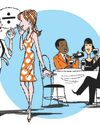
Oh, Behave!
The classiest ways to split a bill, send your sympathies,say no, and more.
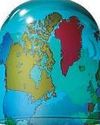
World Of Medicine
News from the world of medicine.
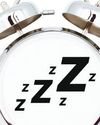
Surviving Substandard Sleep
How to cope after a bad night’s slumber
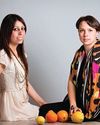
Good News
Some of the Positive Stories Coming Our Way

Medical Mystery
THE PATIENTS: Katie*, 26, and Ella*, 24, of Boston, United StatesTHE SYMPTOMS: Late-onset speech and motor-skill delayTHE DOCTOR: Dr. David Sweetser, chief of medical genetics and metabolism at the Mass General Hospital for Children
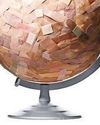
News From The World Of Medicine
A commission of experts assembled by the medical journal
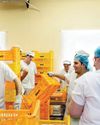
Making Yogurt, Healing Minds
How a psychologist turned entrepreneur— and helped turn around lives